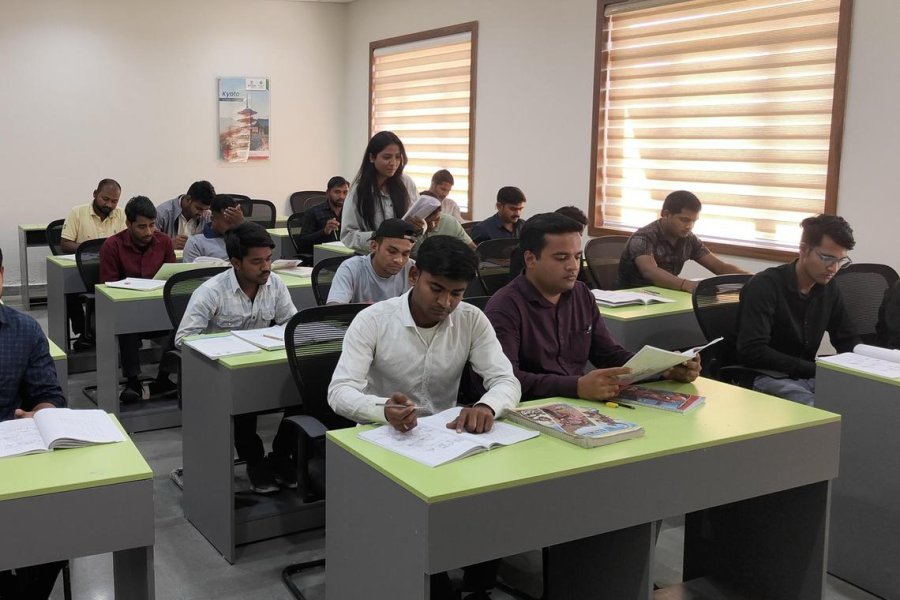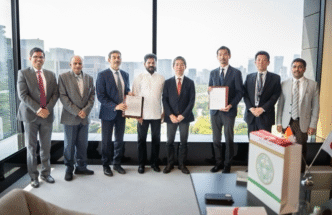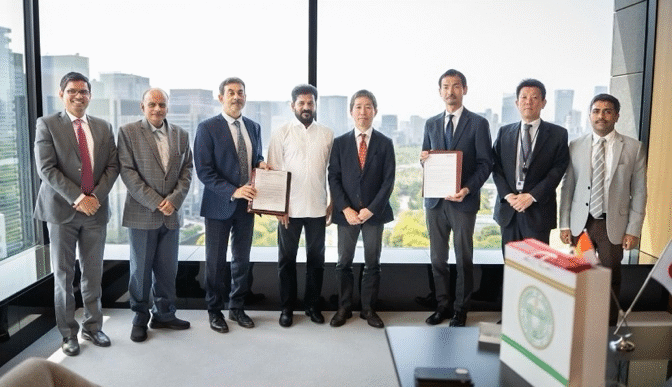Bridging the Global Workforce Gap Through NSDC International
As labour shortages increase in developed countries like Japan and Germany, India is stepping up to supply skilled workers through government-backed training programs. The NSDC International Academy, an initiative of the National Skill Development Corporation (NSDC) International, is equipping young Indians with the language and technical skills required to secure well-paying jobs in japan abroad.
Training Indian Workers for Global Opportunities
At the NSDC International Academy in Greater Noida, students are preparing for jobs in Japan’s agricultural sector and Germany’s healthcare industry. Many are eager to leave low-paying jobs in India for better wages and career growth opportunities abroad.
One such student is Prabhat Tiwari, a trained engineer who decided to switch to farming. With an opportunity to earn 160,000 yen (₹90,000) per month as a farmworker in Japan, he believes he will gain valuable experience in high-tech agriculture, which he plans to use for his own agricultural startup in the future.
Similarly, Aimey Lalu, a nursing student at the academy, hopes to work in Germany, where nurses can earn seven times more than they do in India.
“We can’t even repay our loans working in India. Abroad, we will get better salaries and career opportunities,” she said.
How NSDC International is Supporting Workers
The NSDC International Academy was officially inaugurated on February 6, 2025, and offers language and skills training tailored to international job markets. Key features of the program include:
• Language Training – Courses in Japanese and German to help workers integrate into foreign workplaces.
•Technical Upskilling – Training for jobs in nursing, construction, automotive repair, hospitality, and farming.
•Affordable Education – A nine-month Japanese course costs ₹90,000, covering tuition, lodging, and recruitment tests.
• Job Placement Assistance – NSDC International connects trained workers to verified global recruiters, ensuring safe employment.
•Expansion Plans – 10 more training centers are set to open by March 2026, supporting India’s goal of placing one million workers abroad in the next three years.
Growing Demand for Indian Workers in Japan and Europe
Many developed nations with ageing populations are facing labour shortages, leading them to recruit skilled workers from India.
•Japan – Needs workers in farming, construction, and elderly care due to its declining workforce.
•Germany – Requires nurses and caregivers as its healthcare sector faces a worker crisis.
•Israel & the Middle East – Demand for construction and caregiving workers is rising.
NSDC International has already helped 30,000+ Indian workers secure jobs in 20+ countries, including Japan, Germany, Australia, Israel, and Saudi Arabia.
“Language skills are now a key requirement from employers in Japan and Germany. Familiarity with the local language helps workers integrate better,” said Alok Kumar, CEO of NSDC International.
Challenges and Risks of Working Abroad
While overseas jobs offer higher salaries and career growth, Indian workers face challenges such as:
• Employment Scams – Many job seekers fall victim to fraudulent recruitment agencies promising jobs in Australia and the US.
• Conflict Zones – Indian workers in Israel have faced security risks, with one worker killed in 2024 due to regional conflict.
• Job Role Mismatch – Some workers in Israel’s construction sector have reported being misled about job responsibilities.
To address these concerns, NSDC International verifies recruiters and ensures workers are not sent to high-risk areas.
“We only place workers in safe locations with proper agreements to protect their rights,” Kumar assured.
Future of India’s Global Workforce
With rising unemployment in India, initiatives like NSDC International offer hope for young professionals looking for better career prospects abroad. The government aims to increase global job placements through strategic partnerships with international employers.
As more Indian workers move abroad, upskilling and safe migration policies will be crucial in ensuring successful and secure global employment.
Would you consider working abroad for better opportunities? Share your thoughts!

















